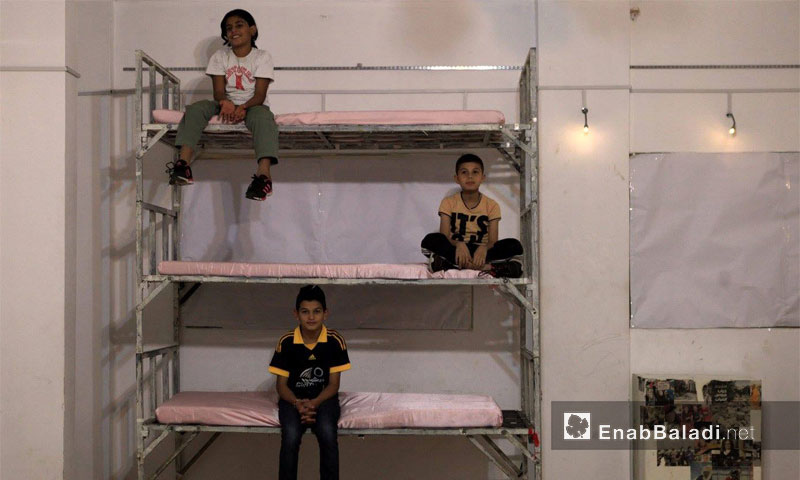
Four Performances in Shatila and Another Expected in Beirut
“Bunk Bed”: A Play whose Heroes are Syrian Refugee Children in Lebanon

Special – Enab Baladi
The play by the Syrian writer and director Omar Baqbouq was written to be performed in his country Syria, but circumstances have led to it being performed in Lebanon with three refugee children as its stars. These children present a microcosm of the regime’s rule – one of them revolts against it and the others continue their lives normally, an example of the reality of the Syrian revolution.
Baqbouq chose the title “Bunk Bed” for his theatrical piece to convey the play’s general idea of highlighting those who have no place in the world, according to Baqbouq. In an interview with Enab Baladi, he said he had written the script at the start of 2012 when he was a student in theater school as an attempt to express his feelings and impressions after the start of the Arab Spring and before the beginning of the revolution in Syria.
The play has been performed four times in the Basma Wa Zaytouna organization center in Shatila where the last performance was on 10 November. Its events revolve around three children of different ages living in a narrow space that is not big enough for them. The children live in the shadow of their parent’s strict regime; although the parents never appear in the theatrical work, the regime’s effect on the children appears through their dialogues especially after the escape of the middle brother which the other two children hide from the parents fearing their reaction, continuing their lives without any change.
Mayyas group, a small theatrical group, presented theatrical performances in Damascus but were marginalized because of their political orientation, according to Baqbouq. One of Mayyas’ performances ‘Facebook Syrialism’ documented the history of the Syrian revolution through Facebook posts. The group performed it in the headquarters of the Building the State Movement in Damascus. The group’s fourth performance entitled ‘Richard The Third: The Second Version’ was performed in the year 2014 after the presidential elections and represented the end of the Damascus performances after criticisms of the opposition inside Syria, according to Baqbouq.
After Baqbouq arrived in Shatila and experienced the living conditions of Syrians in its camp, cramped inside narrow rooms, he tried to develop the play’s script and modify it to suit the camp’s environment. He then trained the children to perform the play for two months. They added their own details and touches to the script, according to Baqbouq. He pointed out that the children will be performing the theatrical work in Beirut at the end of November.
In the play, Moayyad Saleh Mohammad (11 years old) plays the middle brother and Hussein al-Hasan (13) and Hussein al-Hajji (10) play his brothers. Speaking to Enab Baladi, al-Hassan said he was very happy to be in the play, “I felt like I became an actor, just as I dreamed.”
Although the children’s life continues, the play is disrupted in the seventh minute when the middle brother runs away, his absence creating a vacuum in the theatrical space, as Baqbouq describes it. He likens the brother’s absence to “the abnormality we usually see in military barracks and prisons”, transforming the play into a discussion of what the brother has done and thoughts of rebelling with him.
The theatrical work, which lasts 22 minutes, uses three types of performance or theatrical form, as the director explains. The first is the realistic type embodied by the three children living a routine daily life. The second is embodied in the older and younger brother describing the details of their brother’s escape through testimonies. This method has become popular recently, with the person sitting in front of the audience and recounting their story to them directly.
The third type is the final monologue, which the run-away child recounts at the end of the play when he speaks in a poetic style for three minutes, far from reality. He speaks in disconnected sentences, “Place… I had a place and now I have no place… I do not want to go back and be weaker… I do not want to be limited by a place… I will keep walking and clearing the ground with my steps… I will go back, I will continue… Where is the place?… I wish I had been born in a different place.”
The director, who works as an assistant manager in the cultural center belonging to Basma Wa Zaytouna, an organization concerned with refugee issues in Lebanon and recently in Turkey, says that the monologue was written independently from the script. In it, he tries to restore the image of Syrian children who represent death, such as Aylan and Umran. He pointed out that the middle child’s speech “is a monologue of death and the nihilism of life”.
Omar Baqbouq was born in Damascus in 1987 and is one of the members of the Mayyas theater group, which was formed in Damascus in 2013. The playwright holds a degree in philosophy and theatrical studies. He said he left Syria in 2015 after the security situation deteriorated to work as an actor in Lebanon. “Bunk Bed” is the first performance sponsored by the group in Lebanon.
At the end of the theatrical performance, the fate of the middle brother remains unknown despite him reappearing to deliver the final monologue. The playwright leaves the audience guessing at the end, in a scene showing the awaited birth of the children’s new brother.
if you think the article contain wrong information or you have additional details Send Correction
النسخة العربية من المقال
-
Follow us :
Most viewed
- Washington clarifies to Enab Baladi Assad's claims of secret meetings with US officials
- Russian raids around al-Tanf accompanied by accusations against Americans
- Al-Assad issues decree on establishing alternative information ministry
- After controversy over his fate, Ali Mamlouk appears in Russia
- US Senate approves “Captagon II” bill, paving way for presidential signature

















 A
A
A
A
A
A



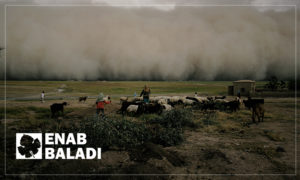
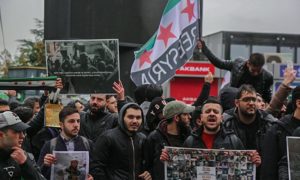
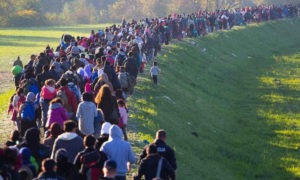
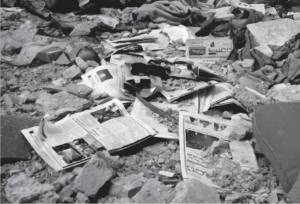
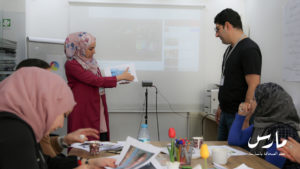
 More Events
More Events